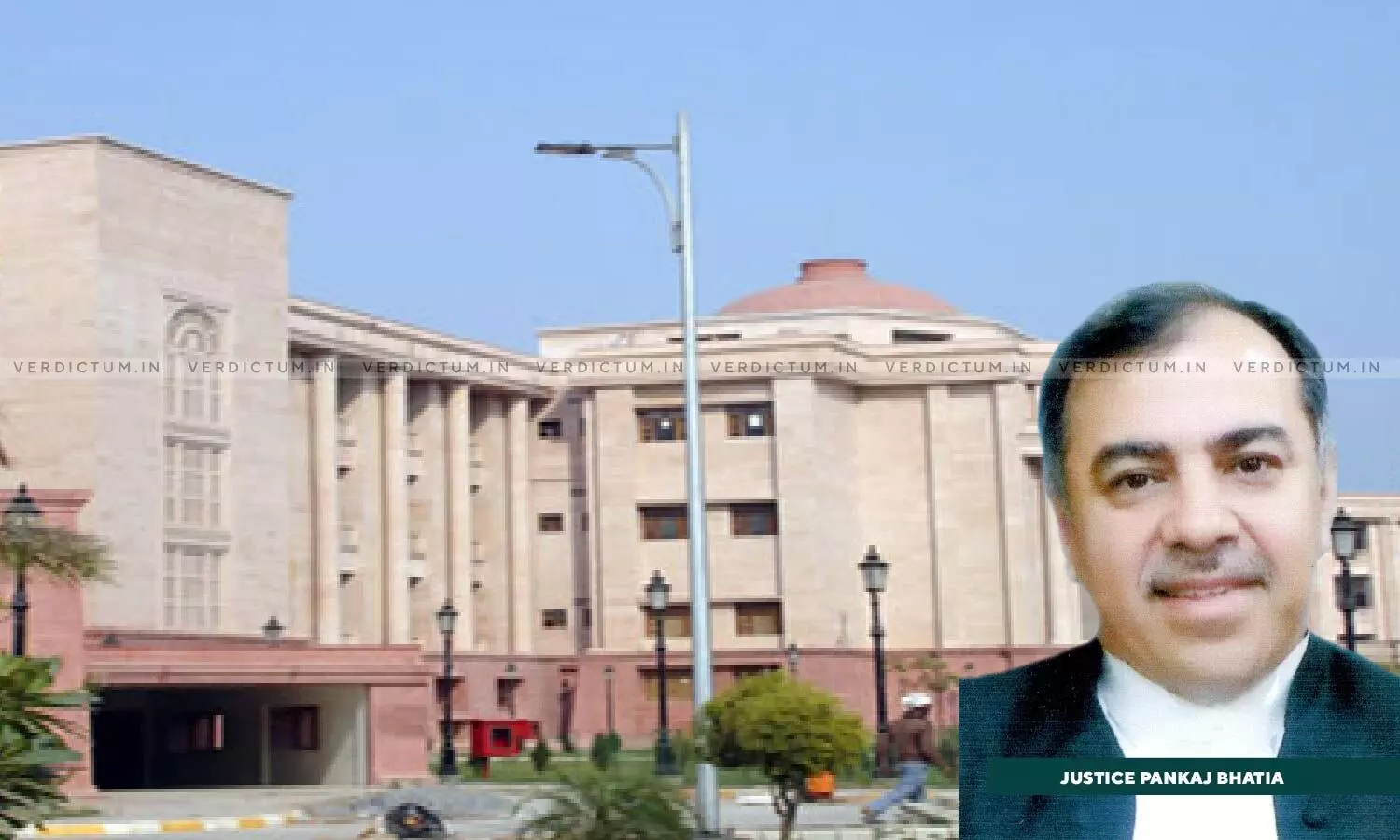
Justice Pankaj Bhatia, Allahabad High Court, Lucknow Bench
Winding Up Petition Cannot Be Entertained Without Specific Pleading U/S. 433(c) Of Companies Act: Allahabad High Court
 |
|The Court said that a company cannot be wound up under Section 433(c) of the Companies Act in the absence of a specific prayer to that effect, and clarified that strict rules of pleadings apply to such proceedings.
The Allahabad High Court dismissed a winding-up petition filed under Sections 433(e) and (f) of the Companies Act, 1956, observing that no relief had been sought under Section 433(c), and thus the petition could not be considered under that ground. The Court reiterated that winding up proceedings are governed by strict pleading requirements and a company cannot be wound up without a specific prayer under the applicable provision.
A Single Bench of Justice Pankaj Bhatia observed, “The petition was not filed under Section 433(c) of the Act and a relief has been sought on that count... The said contention cannot be accepted for the simple reason that it is fairly well settled that the strict rule of pleadings apply for winding up in terms of the provisions of Rule 6 and Rule 11 of the Companies (Court) Rules, 1959, thus, the petition lacking a prayer for winding up of a company under Section 433(c) of the Act cannot be considered in view of the lack of prayer.”
Advocate Amrendra Nath Tripathi appeared for the Petitioner, while Advocate Shailendra Srivastava represented the Respondent.
Brief Facts
The Petitioner sought winding up of the Respondent on the grounds of admitted debt and inability to pay under Sections 433(e) and (f) read with Section 434(1)(a) of the Companies Act, 1956. It relied on a deed of assignment through which IDBI Bank transferred debts to the Petitioner, and also on an admitted unsecured loan of 64.30 lakh shown in the Respondent’s balance sheet. The Petitioner also alleged fraudulent attempts by the Respondent to alienate assets.
The Respondent contested the claim, arguing that the debt assigned was already extinguished via a One Time Settlement (OTS) with IDBI Bank in 2005, long before the deed of assignment. It further submitted that the statutory notice under Section 434 had not been duly served and that the winding-up petition was an abuse of process to bypass recovery litigation.
Reasoning of the Court
On the question of the assigned debt from the Bank, the Court held that no enforceable debt remained at the time of the assignment, stating, “The assignment deeds assigned the debts which were non-existent as the OTS proposal had already been signed by the IDBI Bank and based upon the payments thereof, the recovery proceedings were also consigned to record.”
The Court noted that even under the Transfer of Property Act, the debt owed to the Bank stood extinguished even prior to the assignment in favour of the Petitioner, even if the Petitioner had approached and filed a suit for recovery against the Respondent based upon the assignment of the debt, the same would, prima facie, have miserably failed.
The Court observed, “I have no hesitation in holding that the claim of the petitioner/company based upon the ‘assignment deed’ cannot be a foundation for seeking winding up.”
As regards the second leg of the claim, an admitted unsecured loan of 64.30 lakh, the Court observed that while this amount was shown in the company’s balance sheet, no proper statutory notice under Section 434(1)(a) had been served at the registered office. “As no notice as is required under Section 434 of the Act was duly served on the registered address of the company… it cannot be said that the company has failed and neglected to pay the amount which is ‘sine qua non’ for invoking Section 433(c) and 434(1)(a) of the Act…”, the Court added.
The bench further noted, “Respondent/company have admitted that they are ready and willing to pay the amount of 64.30 Lakh… to show their bonafide, they had proposed to tender an amount of 1 Crore.”
On the Petitioner’s invocation of Section 433(f) (just and equitable ground), the Court clarified the high threshold required, and stated, “It is essential for the Court to form a view that in view of the status of the company, if the company is not wound up, the same would amount to a threat to the commercial world… No such material exists…”
Consequently, the Court dismissed the petition and directed the Respondent to pay 64.30 lakh with 11% annual interest within two months, clear Provident Fund dues within four weeks, and settle outstanding dues of other creditors.
Cause Title: Zaitek Polyblends Pvt. Ltd.v. Sri Durga Bansal Fertilizer Ltd. (Neutral Citation: 2025:AHC-LKO:30334)
Appearance:
Petitioner: Advocates Amrendra Nath Tripathi, Rahul S. Sahay, Rajesh Kumar Verma, Shobhit Mohan Shukla, Shraddha Agarwal, Stuti Mittal
Respondent: Advocates Shailendra Srivastava, Amal Rastogi, Anurag Verma, Basant Agrawal, Devendra Mohan Shukla, Nalini Jain, Pritish Kumar, Tushar Hirwani
Click here to read/download Judgment